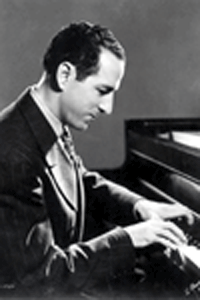(1902 – 1984)
“To Community Concert at Nova Scotian {hotel}. Piano recital given by Sanromá. Met him afterwards at reception.” {April 25 1946}
“Met Sanromá again at party … Played Schubert duets with him, including F minor Fantasy.” {April 26}
“Sanromá and I {had} just time for Mozart Sonata for 2 pianos before he caught plane to Moncton.” {April 28}

Sanromá is considered by many to be one of the 20th century’s most accomplished and important pianists. Here is a very partial description of his musical accomplishments, adapted in part from an article written about him in Evan Bailyn’s The Music of Puerto Rico:
Of Catalan ancestry, Sanromá was born and grew up in Puerto Rico where his extraordinary talent for music was quickly recognized. He obtained a degree from the New England Conservatory of Music, Boston MA and near the end of his studies was appointed pianist of the Boston Symphony Orchestra under Koussevitzky, a post he held for the next eighteen years. At the same time he was able to take time off to study in Paris with Cortot and in Berlin with Schnabel. During his tenure with the Boston S.O. he met violist/pianist Arthur Fiedler and developed a close artistic relationship with him; when Fiedler became conductor of the Boston Pops they formed a soloist-conductor team very much in demand in concert halls and recording studios.
Sanromá gave and recorded first performances of many works in the 20th century repertoire, such as Hindemith’s third Piano Sonata and his Piano Concerto with the Cleveland Orchestra and George Szell. Sanromá and Hindemith toured together promoting the composer’s works, and Hindemith wrote a Sonata for Piano Duet for himself and Sanromá to play and record. Other first recordings were of Gershwin’s Rhapsody in Blue and Concerto in F, MacDowell’s Piano Concerto No. 2 in D minor Op. 23, Liszt’s Totentanz and Paderewski’s Piano Concerto in A minor, which Sanromá and the orchestra played to the composer a few days before recording it.
Olin Downes, in a critique for the New York Times, wrote “As for Mr. Sanromá, he has grown, by an industry and talent as remarkable as his modesty, from a student of a few years ago to a modern pianist whose performance … could be equalled by a very few and out-rivalled by no one.”
George doesn’t say what Sanromá played at that April 25th recital in Halifax alas. To give some idea of the calibre of performance he would have heard, here is a recording of Liszt’s Totentanz Paraphrase on “Dies Irae” for Piano and Orchestra, superbly played by Sanromá with the Boston Pops Orchestra conducted by Arthur Fiedler: VIDEO